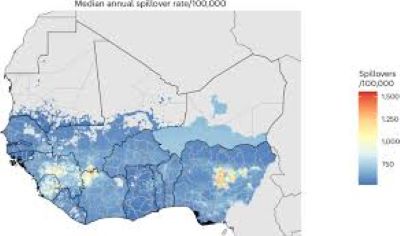In a sudden political shake-up, Burkina Faso’s ruling military junta announced on Friday the dismissal of Prime Minister Apollinaire Joachim Kyelem de Tambela and the dissolution of the national government.
The decree, signed by the junta’s leader, Captain Ibrahim Traoré, was broadcast on national television, marking another significant shift in the West African nation’s governance.
The junta did not provide a specific reason for the move but emphasized the need for “urgent measures to address pressing national challenges.” Captain Traoré assured the public that officials from the dissolved government would continue their duties until a new administration is constituted.
This decision comes as Burkina Faso grapples with escalating insecurity, particularly from Islamist insurgencies, and severe economic hardships. The country has faced persistent attacks by armed groups linked to al-Qaeda and ISIS, displacing thousands and crippling local economies.
Captain Traoré, who came to power through a coup in September 2022, pledged to prioritize security and development. His administration has been under pressure to deliver on these promises amidst growing frustration from the population. The junta’s latest move signals a potential reshuffling aimed at reinvigorating the government’s approach to governance and national security.
International concerns and regional implications
The announcement has drawn reactions from international observers and regional bodies. The Economic Community of West African States (ECOWAS) expressed deep concern over the political instability, urging a swift return to constitutional rule. Similarly, the African Union called for dialogue and a focus on restoring peace and stability.
Burkina Faso is one of several West African nations that have experienced military takeovers in recent years, fueling fears of democratic backsliding across the region. Analysts warn that continued political instability could exacerbate the already dire humanitarian situation and stall efforts to combat terrorism.
Public uncertainty
For the people of Burkina Faso, the junta’s decision has added another layer of uncertainty. Many are watching closely to see whether the restructuring will bring tangible changes or deepen the country’s political and economic challenges.
As the junta works to form a new government, questions remain about its strategy for addressing the insurgency, reviving the economy, and steering the nation toward a more stable future. For now, Burkina Faso remains on edge, facing the dual challenge of immediate security threats and long-term political reform.


